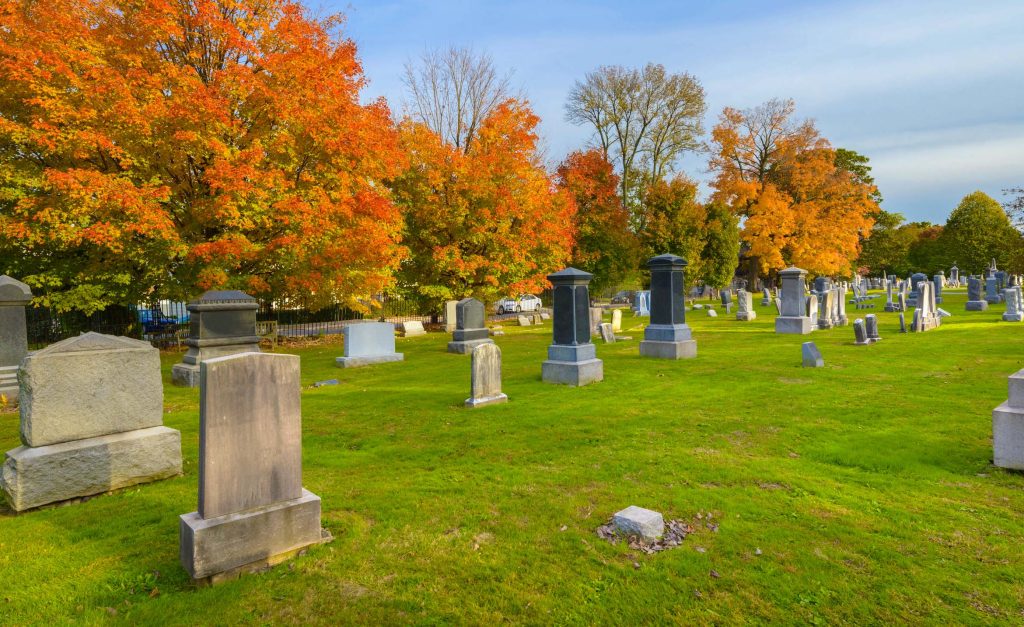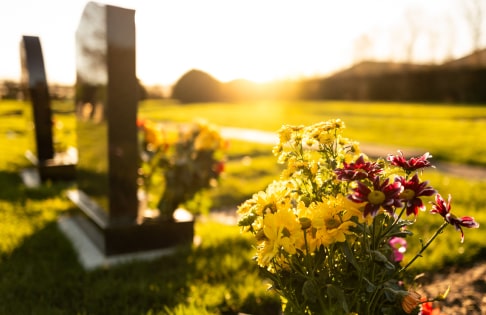Choosing a Cemetery: Where to start

If you’re planning a burial or assisting someone with future arrangements, several important decisions must be made, starting with selecting a cemetery. This is often the first step, as your choice of location will guide the rest of the process, including the type of burial and memorial.
Understanding cemetery types
Not all cemeteries are the same. While it may seem like a simple choice, cemeteries vary significantly in what they offer. Some have mausoleums or scattering gardens, while others might focus on natural burials or have designated areas for specific groups, such as veterans or children. Some cemeteries are situated with scenic views, while others offer secluded, private spaces. Your personal preferences will help guide your choice.
While a small percentage of people opt for burial on their own land, this is illegal in many states. Most people choose a traditional cemetery, though natural burials, where the deceased is placed directly into the ground without a casket or vault, are becoming more popular.
Below, you’ll find information on different types of cemeteries and guidance on making a decision for yourself or a family member.
Key considerations when choosing a cemetery
Before you begin visiting potential cemeteries, it’s helpful to have a general idea of what you want. For some, the decision is straightforward due to family traditions or military service, which may dictate the cemetery choice. However, if you’re open to other options, consider the following four factors:
- Location
- Pricing
- Rules and regulations
- Cemetery options
Choosing a burial plot, mausoleum spot, or cremation niche is a significant investment, and it’s crucial to be satisfied with your choice for years to come.
1. Location
Decide where you’d like to be buried. Do you prefer to be laid to rest near your current home or in your hometown? Consider your family and friends—will the cemetery be convenient for them to visit? Also, think about purchasing a series of plots for family members. Once you’ve selected a general location, consider where within the cemetery you’d like to be buried. Would you prefer a spot under a tree, near water, or with a specific view?
2. Pricing
Cemetery costs vary widely, so an essential part of the discussion should be requesting a quote and detailed pricing information. When choosing a cemetery, be aware of the different fees involved, including:
- The cost of the burial plot, columbarium niche, or mausoleum spot
- Burial fees, including grave opening, closing, and the memorial marker
- Maintenance fees, sometimes called “perpetual care,” which cover grounds upkeep
3. Rules and regulations
Every cemetery has its own set of rules, such as what types of headstones are allowed. Some cemeteries only permit flat markers, while others may have restrictions on materials or sizes. Additionally, many cemeteries have regulations regarding burial practices, such as requiring an outer burial container (vault) to prevent the grave from sinking.
Be sure to ask for a list of rules and requirements from the cemetery you’re considering, especially if you have specific preferences, like scattering ashes or green burials. It’s also important to respect common restrictions, such as prohibiting pets on the grounds.
4. Cemetery options
Consider any special affiliations or requirements you might have. Some people prefer cemeteries with religious or cultural significance. If you’re considering cremation, check if the cemetery offers columbarium niches, burial spots for urns, or scattering gardens. If you’re interested in a green or natural burial, confirm that the cemetery accommodates these options.






 Use current location
Use current location







